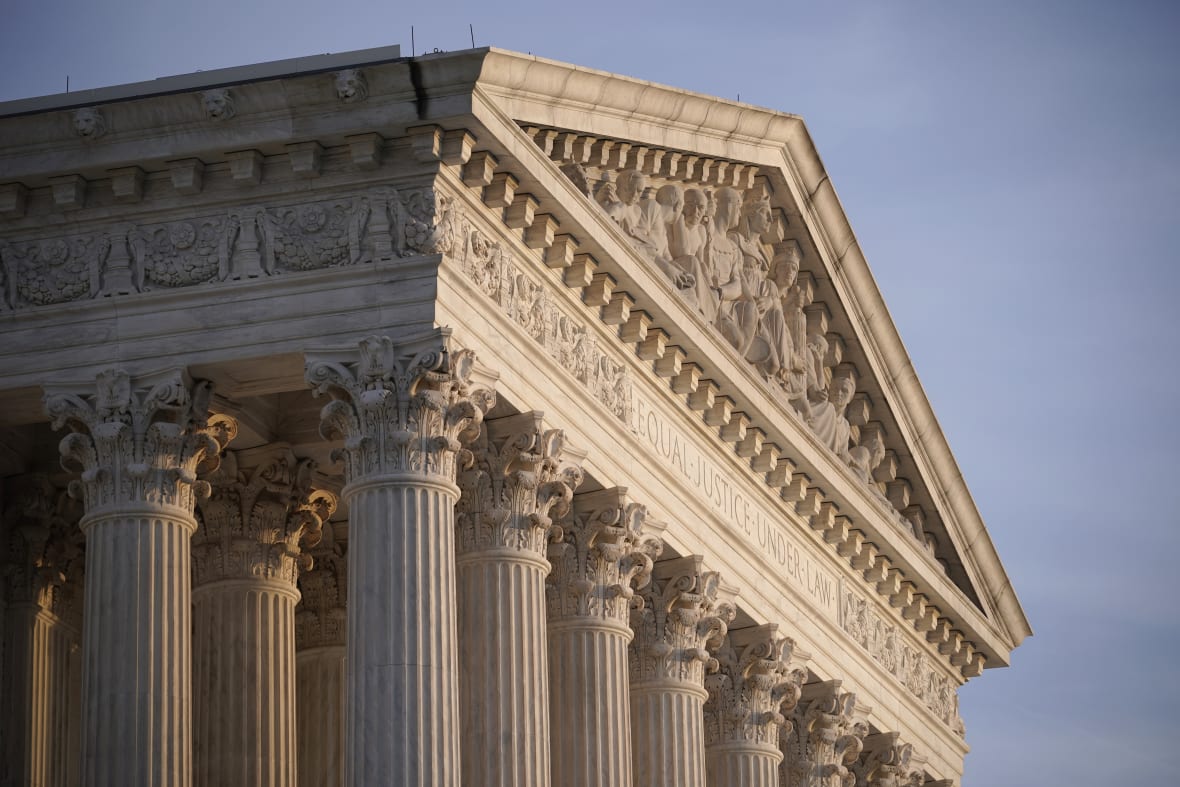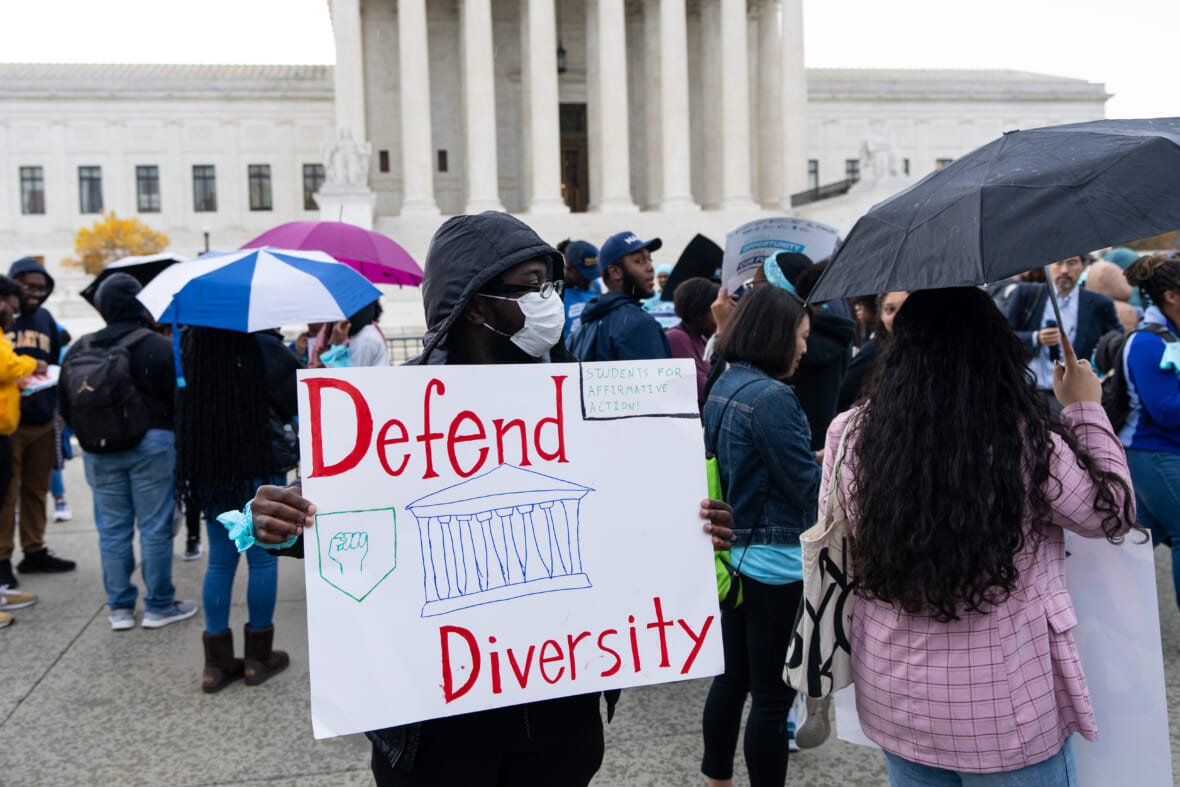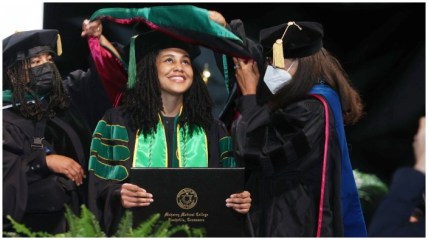What will the Supreme Court decide in affirmative action cases?
“The American public, the American voters -- whether they're Black, white, Latino or otherwise -- understand that race is an important part of your overall college admissions package,” said Ameshia Cross, democratic strategist.
The Supreme Court has less than a month to hand down its ruling in a landmark case that could overturn affirmative action in the college admissions process.
Black and brown Americans would be “hugely disadvantaged” if the high court made such a judicial decision, Democratic strategist Ameshia Cross told theGrio.

“Ending the consideration of race in college admissions would ignore the country’s ongoing challenge of racial inequality and threaten diversity and inclusion on campuses everywhere,” Sarah Hinger, senior staff attorney with the ACLU Racial Justice Program, said in a statement obtained by theGrio.
Race-conscious admissions, she said, “enrich the educational experiences of all students.”
Given the court’s conservative majority, advocates and legal experts understand that an overturning of affirmative action is a very real possibility.
Last fall, the Supreme Court heard oral arguments in two cases where Students for Fair Admissions filed suits against the University of North Carolina at Chapel Hill (UNC) and Harvard University, alleging both universities unfairly gave Black and Latino students advantages to gaining entry to the universities based on race, as theGrio previously reported.
The lawsuits also alleged that UNC discriminated against both white and Asian Americans and that Harvard discriminated against Asian Americans during the college admissions process.
In response to the Supreme Court granting certiorari to both cases, ACLU urged the court to “protect universities’ ability to consider” a person’s racial makeup in the college admissions process.
The ACLU said colleges have “an important interest in student body diversity that furthers the values of academic freedom and equal protection.”
In anticipation of the Supreme Court’s ruling on affirmative action, the Associated Press and NORC Center for Public Affairs Research recently rolled out their results from a poll on affirmative action. The organizations found that 63% of participants favor race remaining a factor in the college admissions process.
Cross told theGrio that she is not surprised by the poll results.

“I do believe that despite the culture wars that we’re seeing being waged by people like Ron DeSantis, Governor Abbott, Donald Trump, and several others across the Republican Party, the American public, the American voters — whether they’re Black, white, Latino or otherwise — understand that race is an important part of your overall college admissions package,” she asserted.
The poll also found that 68% of those surveyed who do not want to eliminate race from the college admissions process also believe that race should not play a significant role in whether a student is admitted to a college or university. They instead believe that factors like grades and standardized tests should be more weighted criteria.
Cross told theGrio that she was puzzled by this part of the poll.
“It showcases a disconnect with how the American public views how admissions work because, essentially, those other sectors have always been a part of the overall package. They’ve always been a part of deciding whether or not a student was going to be admitted, especially in some of our highly selective colleges,” she argued. “Affirmative action is needed. The part that has sunk in is that people believe that [race] is rated higher than any of the factors, which is absolutely incorrect.”
Cross said it could be a slippery slope if the court overturned the use of affirmative action in college admissions.
She said her worry for the future of affirmative action in higher education is similar to the “fear that I had with Roe v. Wade being overturned by the opposition.”
Cross explained, “Dobbs did not tell everyone that the abortion pill should not be legal” or that there would be “legal ramifications for doctors who are performing surgeries or for those who may drive a woman to get [an abortion].”
Cross believes that if affirmative action is overturned it will go beyond the college admissions process.
She said there is a possibility that conservative states would “take this to mean that Black student organizations, Latino student organizations on campus, groups that are affirming to your culture should no longer exist.
“There is no end to what this could actually look like in practice,” she warned.
The Supreme Court is expected to release an opinion on the affirmative action cases in the coming weeks.
TheGrio is FREE on your TV via Apple TV, Amazon Fire, Roku, and Android TV. Please download theGrio mobile apps today!


